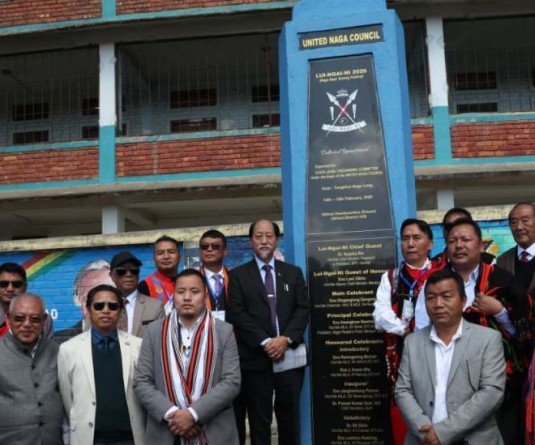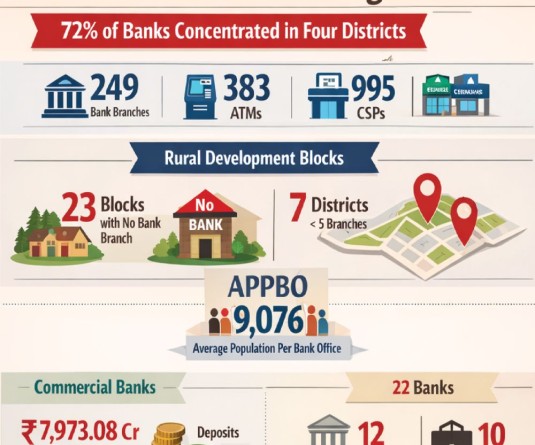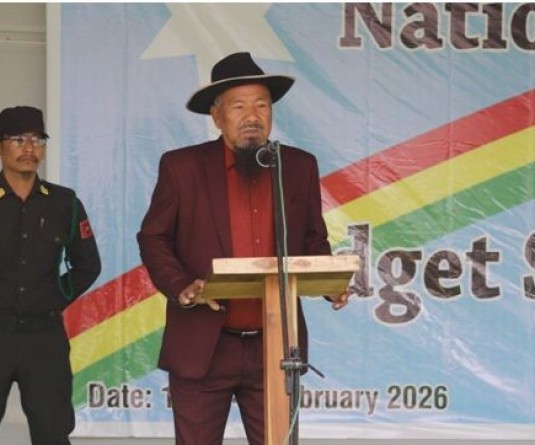The state government held a consultative meeting with the tribal hohos of the state on August 18 at the State Banquet Hall, Chief Minister’s residential complex, Kohima. (DIPR Photo)
• Formation of apex Naga body discussed
• ‘More meetings’ on RIIN
• 14 tribal hohos entrusted to solve Peren-Dimapur boundary issue
• Need to relook into role of GBs in urban areas
Morung Express News
Kohima | August 18
The Nagaland government held a consultative meeting with the tribal hohos on August 18 at the State Banquet Hall, Chief Minister’s residential complex in Kohima to discuss various impending issues.
The meeting which lasted about six hours deliberated on demarcation of boundary between Dimapur and Peren districts, Naga Tribunal for adjudication as per Naga customary law, implementation of RIIN, women reservation and Urban Local Body (ULB) election, institutions of Gaon Buras (GBs) in urban areas, and the Naga political issue, which was not listed.
Terming today’s meeting as a ‘progressive meeting’, Minister Neiba Kronu during a press conference at the Secretariat conference hall, said a marathon discussion was held with the civil society and joint organisations like ENPO, CNTC and TPO who shared their views and opinions which were noted by the government.
However, since today’s meeting was just a consultative meeting, Kronu said no resolution of any kind was taken as more consultations would be held both in smaller and larger groups.
One of the issue suggested by the participants, Kronu informed, was formation of an apex Naga body pertaining to the state of Nagaland as the present Naga Hoho is ‘almost non-functional’.
It was informed that members of the civil society have consensually opined on the much required formation of an apex Naga Hoho within the state of Nagaland solely for the citizens of Nagaland.
When asked if the present Naga Hoho would be consulted prior to the formation of another apex Naga body, Kronu said that they would definitely be consulted.
On RIIN issue, Home Commissioner Abhijit Sinha said a series of meetings are being held both in the district and sub-district level and more meetings are to be held. It was also informed that members of the civil society present at the meeting have sought for more consultations in this matter.
With regard to the demarcation of boundary between Dimapur and Peren districts, Kronu said lack of proper boundary demarcation has created problems and that 14 tribal hohos of Nagaland have been entrusted to resolve the matter as a mediator in the spirit of brotherhood.
Sinha also informed that the 14 tribal hohos have been entrusted to resolve this issue in the greater interest of the Naga people.
Chief Minister (CM) Neiphiu Rio in his keynote address on the boundary between Dimapur and Peren districts said the long pending demarcation needs to be discussed and settled amicably as keeping the issue pending is not in the interest of the people.
He said the lack of clarity on account of the boundary demarcation has been adversely affecting the administration as well as the development of the areas falling along the border areas of these two districts.
To this, he appealed the 14 tribal hohos to put in place the mechanism and work with the spirit of unity and understanding to amicably resolve the issue in the greater interest of the Naga people.
On Naga Tribunal for adjudication as per Naga customary law, Rio emphasised on the urgent need for documentation and codification of the traditional laws, which will provide clarity on where the traditional laws can be invoked and other laws- central or state laws would need to be invoked.
With the state to have its own separate High Court, he impressed on the need to codify the customary laws urgently to avoid any possibility of confusion or overlapping of cases, and that the Naga tribunal can be established to provide a road map for the state government on the way forward.
On the institution of GBs in urban areas, Rio was of the view that the system of governance in the urban settlements is quite different from rural areas and villages.
In urban areas, with a more cosmopolitan and mixed population with police and elected urban local bodies, Rio opined that the role of GBs cannot be the same as in rural village, which has homogenous population, and where GB is part of the village council.
Hinting on doing away with the institution of GB in urban areas, the Chief Minister maintained that, “The nomenclature of Gaon Bura in a town itself is an anomaly,” and suggested the need to relook into the need and role of GBs in urban areas.
Deputy Chief Minister (Dy CM) Yanthungo Patton also noted the differences that exists in urban and rural area settings, and suggested the rethinking on the nomenclature of GBs for towns and cities.
With emerging urban settlements, Patton urged the tribal hohos to look into all aspects concerning the role of GBs in urban areas and give their valuable suggestions.
Both the CM and Dy CM thanked the participants in discussing some very critical and delicate issues, with Patton adding, “So that we are able to move forward and take the right decisions in the interest and well-being of our state and people.”
“Today’s discussions will form the basis of decisions that will be taken by the government. It would be important that we discuss these issues with a reformist mind and agenda, so that we can resolve these important issues without further delays and move forward” Rio said.






